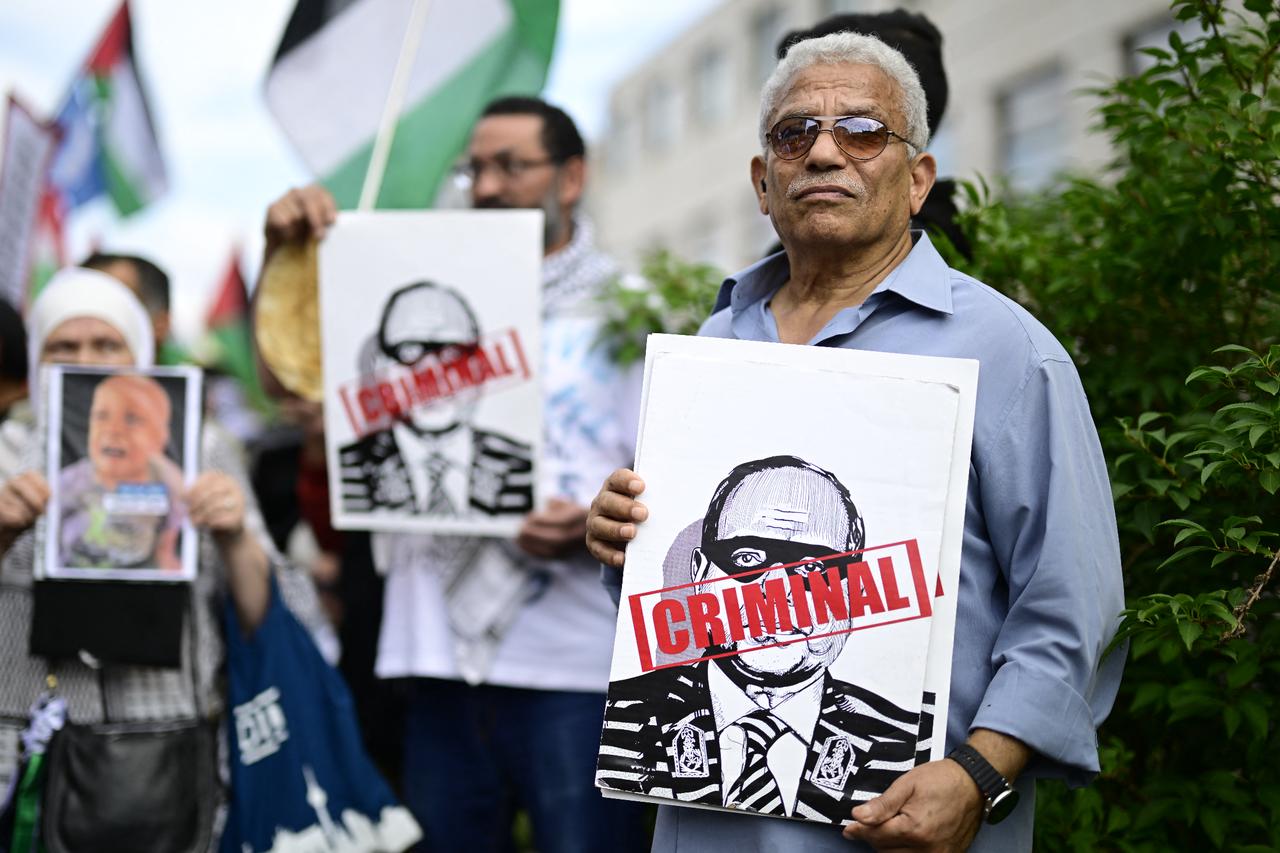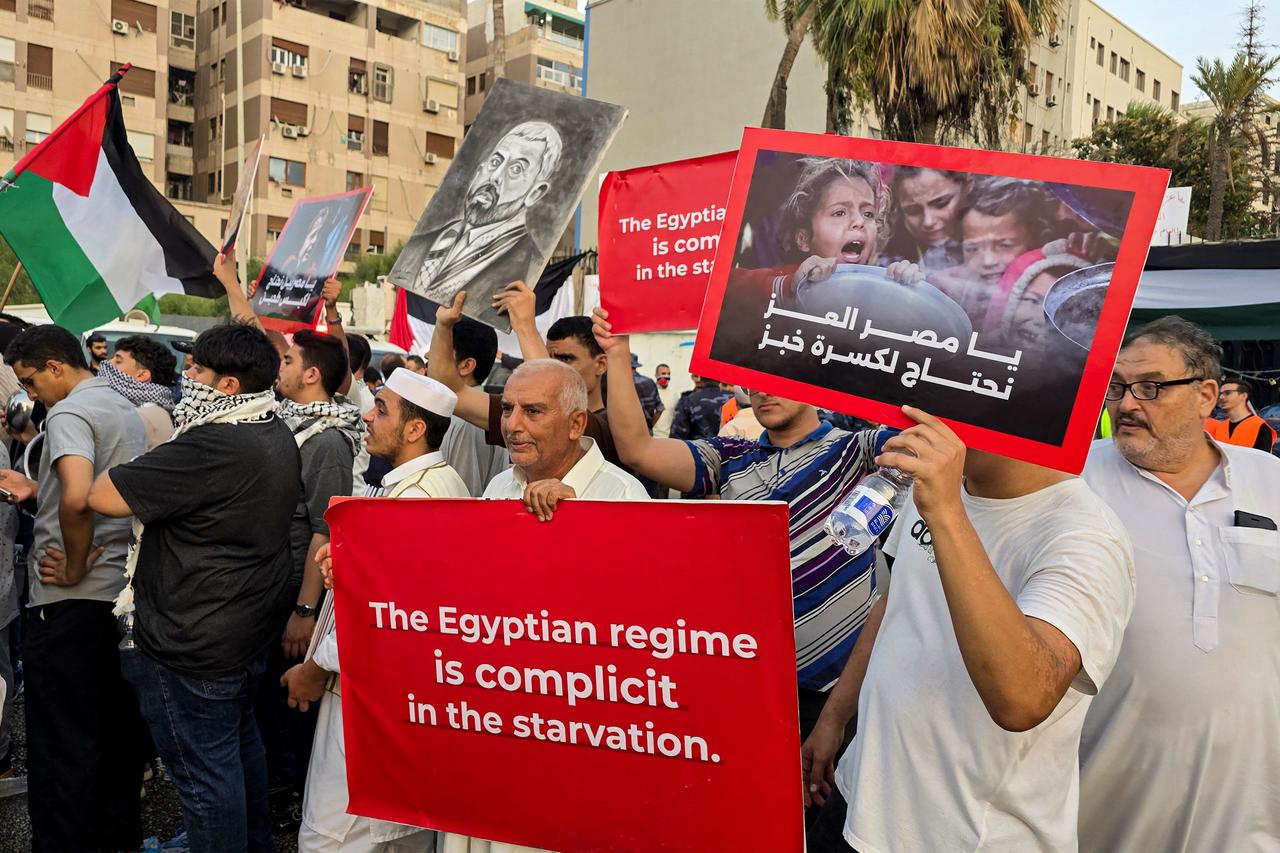
Activists have shut down Egyptian embassies in more than 16 countries, including Türkiye, in a coordinated protest against Egypt’s continued closure of the Rafah border crossing.
The action reflects mounting international pressure on Cairo, as the blockade contributes to the worsening humanitarian crisis in Gaza, where the blockade is preventing the entry of aid and obstructing the evacuation of the wounded and sick.
This move came after a young Egyptian man named Anas Habib, residing in the Netherlands, locked the gates of the Egyptian Embassy in The Hague on July 21 with a metal chain in a symbolic act of protest against the continued closure of the Rafah crossing by Egyptian authorities amid the ongoing offensive on Gaza.
Habib livestreamed the act on social media, appearing as he secured metal locks to the gates of the Egyptian Embassy from the outside.
During the broadcast, Habib stated, “It’s locked from their side, not ours,” directly challenging the official Egyptian narrative, which claims that the Rafah crossing is closed by Israel and that Egypt holds no responsibility for its continued closure.
The video quickly spread across social media platforms, drawing widespread attention and sparking public outrage.
The act also inspired similar activists in several countries, where protesters moved to close Egyptian embassies in solidarity.
In Türkiye, three young Egyptian women shut down the Egyptian embassy in Ankara, declaring that they could no longer remain silent in the face of the daily injustices.
What began as an individual initiative soon evolved into a broader wave of coordinated protests across cities in Europe and North America.
Activists organized protests outside Egyptian embassies and consulates in condemnation of what protesters and human rights advocates have described as “Abdel Fattah el-Sissi’s regime’s complicity with the Israeli occupation,” with some carrying out symbolic closures of embassy entrances to convey growing frustration over Egypt’s stance on the Rafah crossing.

The Egyptian government responded to accusations of failing to deliver aid to Gaza through a televised statement by President Abdel Fattah el-Sissi, who said that the entry of aid through the Rafah crossing takes place only after coordination with the other side.
He stressed that the operation of the crossing is not solely under Egypt’s control but also depends on the presence of parties within the Gaza Strip.